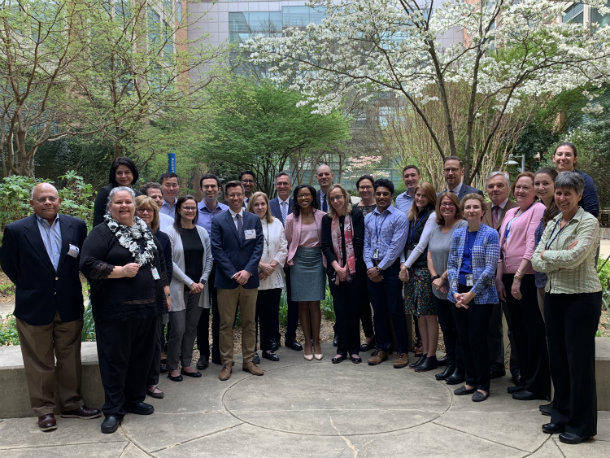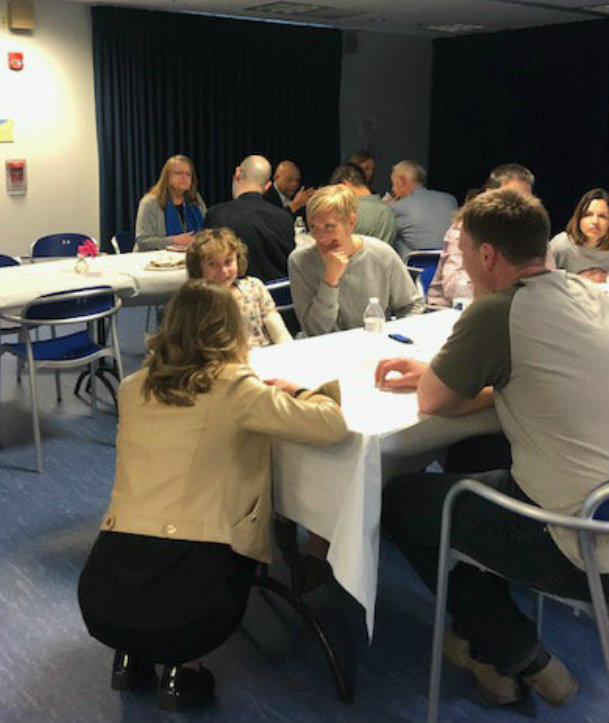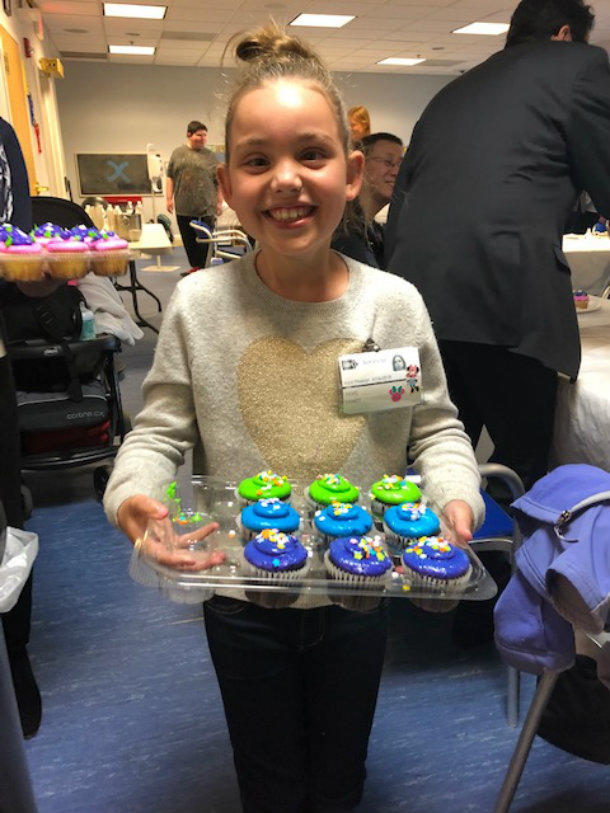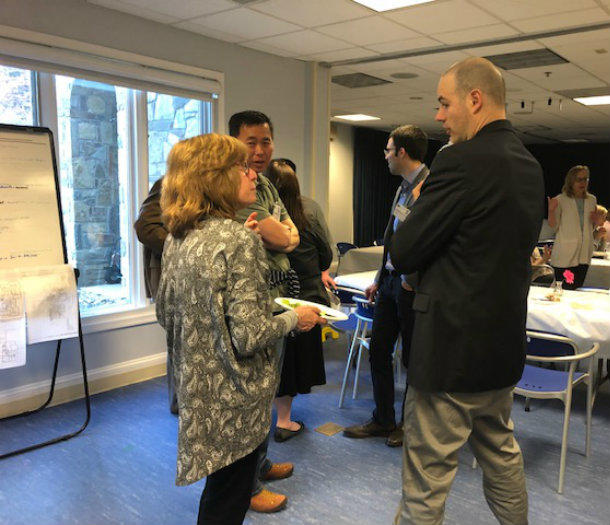First Chordoma Clinic Brings Patients and Families Together with Expert Doctors
Chordoma is a rare type of cancer that grows in the bones at the base of the skull and spine. Only about one per one million people per year are diagnosed with chordoma, which translates to about 300 people in the U.S. and 700 people throughout Europe diagnosed each year. Chordoma is often hard to treat due to where the tumor is. In about 30-40% of cases, the cancer can spread to other parts of the body.
MyPART worked with the Center for Cancer Research staff and the Chordoma Foundation to host the first childhood, teen, and young adult Chordoma Clinic at NIH on April 16th – 18th, 2019. The goals of the first clinic were to:
- Bring together young chordoma patients with expert doctors and patient advocates.
- Collect data for basic and clinical research on chordoma affecting young people.
- Share knowledge and start new team projects on childhood, teen, and young adult chordoma.
The Chordoma Foundation helped find patients who could gain the most from the clinic. Patients were invited to the clinic by MyPART clinicians and joined the MyPART Natural History Study.
Expert chordoma doctors from both inside and outside NIH met with each patient and their family to talk about their case. MyPART staff collected blood samples, patient-reported symptoms, and medical records. Patients also met with a genetic counselor, a psychologist, and other specialists to learn more about how to take care of themselves.
For patients and their families, the Chordoma Clinic was a chance to meet with the “dream team” of doctors, as parent Mr. Frank Fernandes called them. Mr. Fernandes’s son was diagnosed with chordoma in 2010. After a long journey with chordoma, he is now cancer free. Mr. Fernandes explained the importance of sharing their experience and learning from the experts. When his family was invited to the clinic, they “felt like, here is another tool we can add to the toolbox,” Mr. Fernandes explained. For them, the Natural History Study is a tool that may one day lead to new chordoma treatments.
Mr. Fernandes also talked about being an advocate for his son and finding other partners to collaborate with on his son’s treatment: “When we find a doctor [who] wants to be part of a collaborative team, that’s who we steer towards.” They want to work with doctors who will become partners with them in treating the disease. Having partners that make up a collaborative team makes sure the patient is getting the best possible care. Those partners include doctors, but also patient advocacy groups like the Chordoma Foundation. Patient advocacy groups like the Chordoma Foundation can help patients find the advocates they need quickly.
For patients with rare cancer, finding a support network can be very hard. In addition to bringing chordoma patients together with experts, the Chordoma Clinic gave patients and families the chance to meet and bond with each other. For most patients, this was the first time they had met someone else with chordoma. During a dinner on Tuesday night at the Children’s Inn, patients and families were able to spend time together and share their experiences. They exchanged contact information to keep in touch after the clinic ended. In this way, the Chordoma Clinic helped provide emotional support as well as medical support for patients and their families.
The success of the Chordoma Clinic shows the need for patients, doctors, and advocates to work together on rare cancers. MyPART will continue to host rare cancer clinics to bring people together for rare cancer research and treatment.
Learn more about MyPART rare tumor clinics here.
We thank the patients, families, and advocates who joined us at the inaugural Chordoma Clinic. We also thank the MyPART staff and each of the following external experts who gave their time to the Chordoma Clinic:
- Dr. Gregory Cote (Medical Oncology, Massachusetts General),
- Dr. Paul Gardner (Neurosurgery, University of Pittsburgh)
- Dr. Christopher Heery (Medical Oncology, Bavarian Nordic)
- Dr. Norbert Liebsch (Radiation Oncology, Massachusetts General)
- Dr. Robert Malyapa (Radiation Oncology, University of Maryland)
- Dr. Debraj Mukherjee (Neurosurgery, Johns Hopkins University)
- Dr. Deric Park (Neurology, University of Chicago)
- Dr. Nick Rowan (Otolaryngology, Johns Hopkins University)
- Dr. Carl Snyderman (Otolaryngology, University of Pittsburgh)



